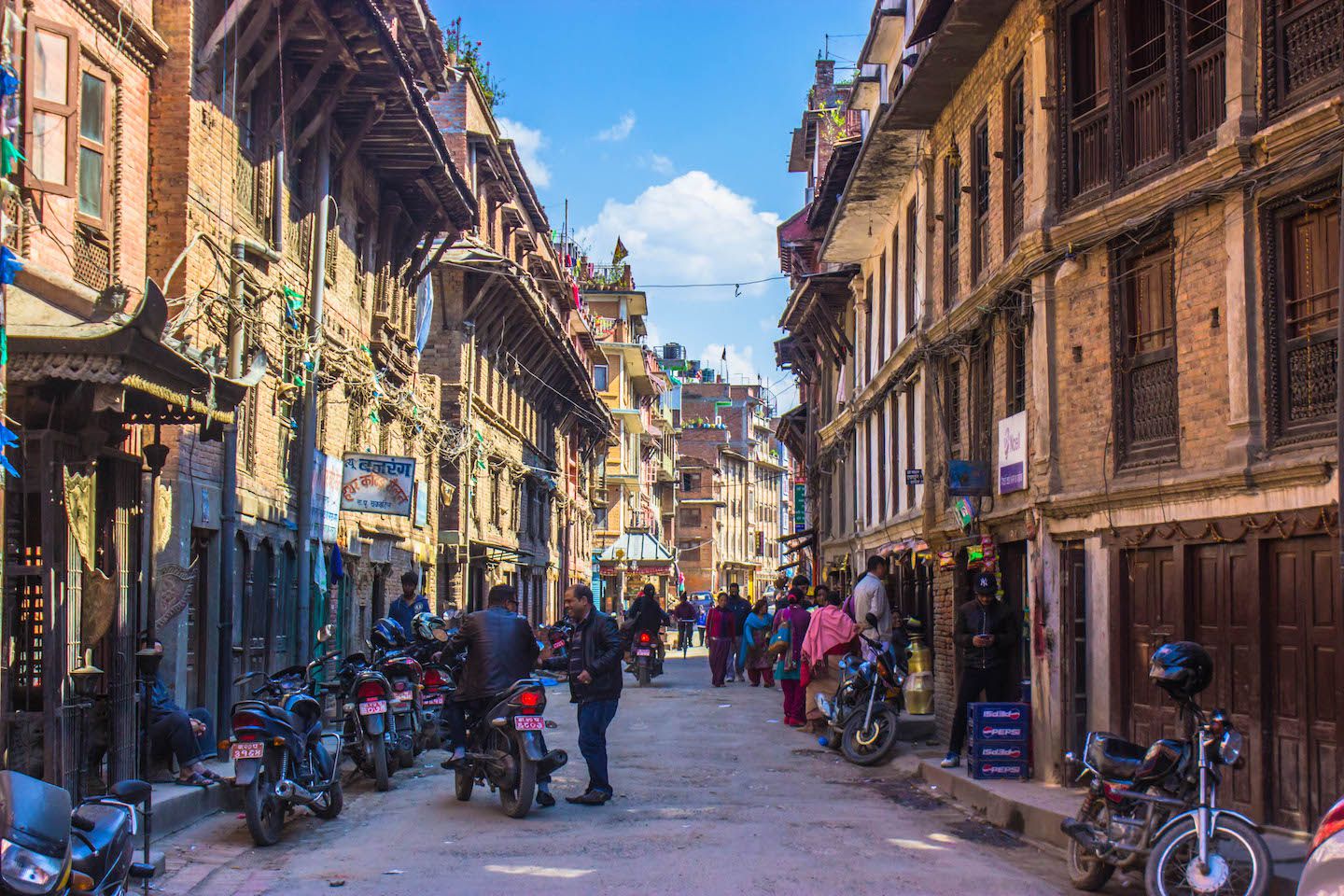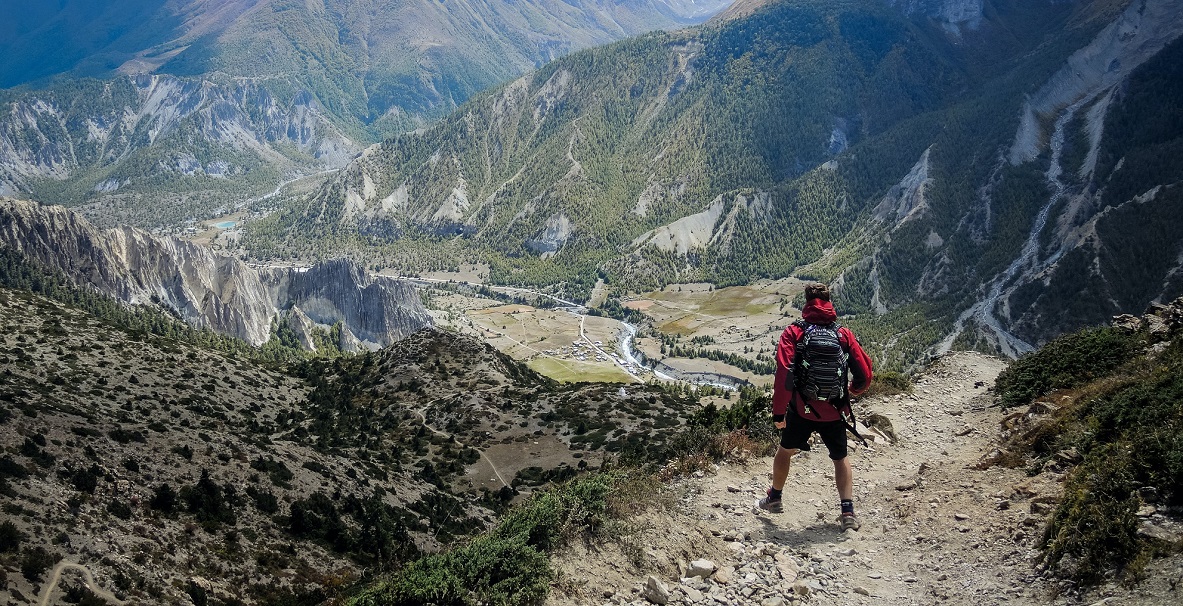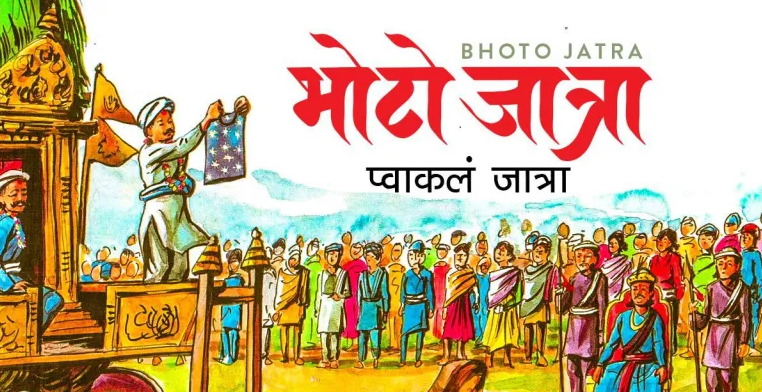Patan is among one of the major and oldest cities of Nepal. Situated at the heart of the city in the south-western part of Kathmandu Valley, it is one of the oldest Buddhist cities in the world. More particularly for its tradition of arts and crafts; this city is best known for its rich cultural heritage. It is also known as the city of festivals and feasts, fine ancient art, making of metallic and stone carvings.
Here are nine major attractions that you can witness around the city:

Patan Durbar Square
Patan Durbar Square is full of ancient temples, stunning carvings, statues and many more. It has the most visually stunning displays of Newari architecture to be seen in Nepal. Temple construction in the square went into overdrive during the Malla period (14th to 18th centuries), particularly during the reign of King Siddhinarsingh Malla (1619–60). It was listed in the UNESCO World Heritage Monument list in 1979.
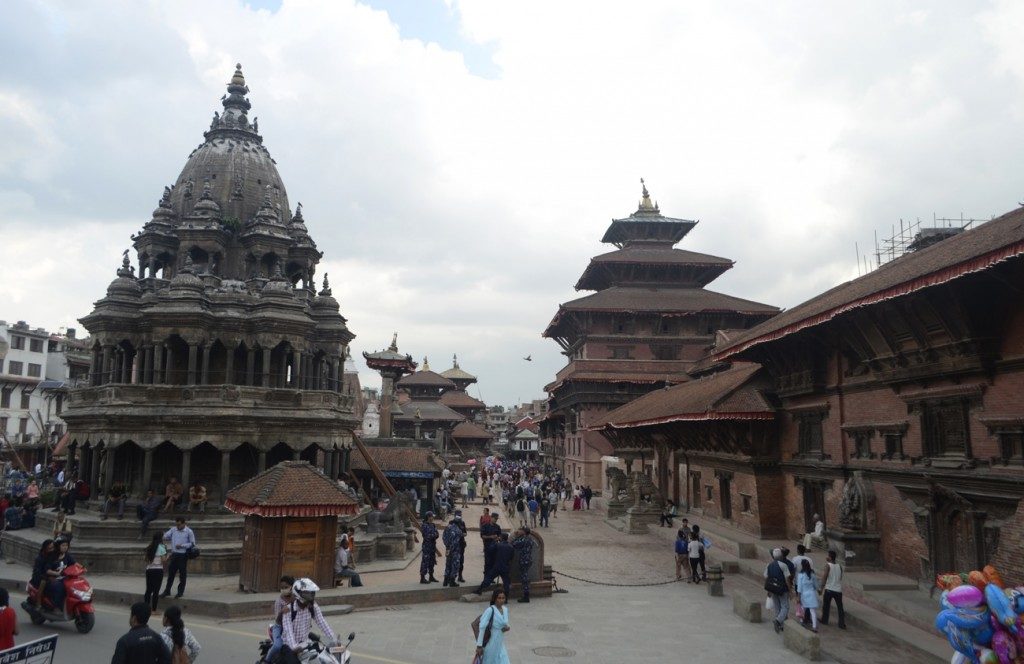

Patan Museum
Patan Museum inside the Patan Durbar Square specializes in bronze statues and religious ancient objects. Patan Museum is also considered as one of the best museums in Asia.
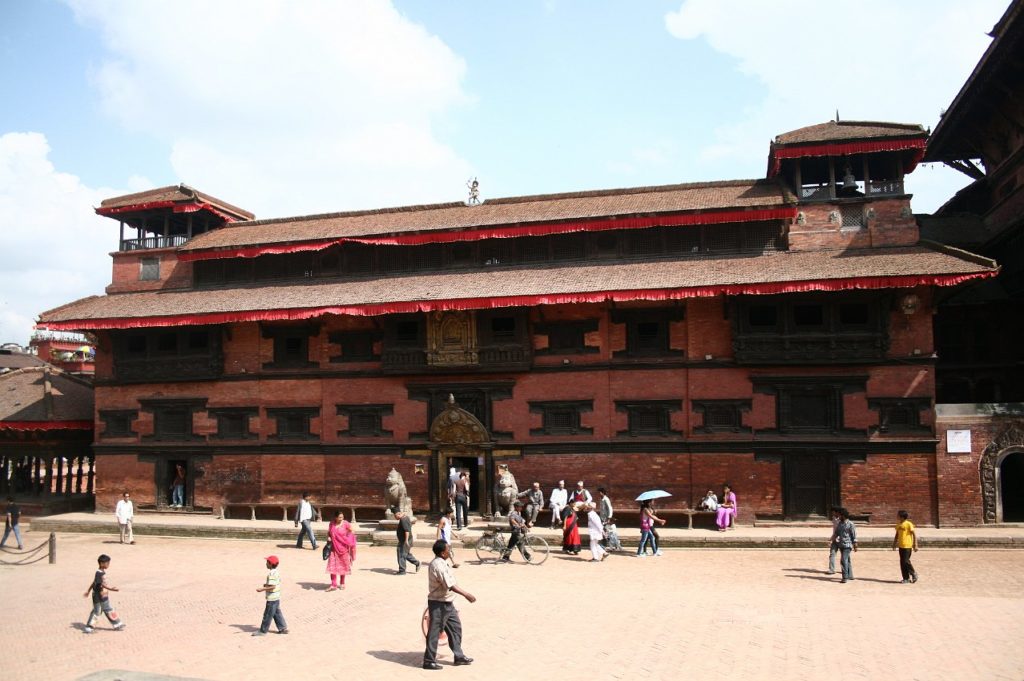

The Krishna Mandir
The stone temple of Lord Krishna was built in 1637 AD. It is supposed to be the first specimen of Shikhara style architecture in Nepal. It is the only temple in Nepal having 21 spires and is completely made of stone.
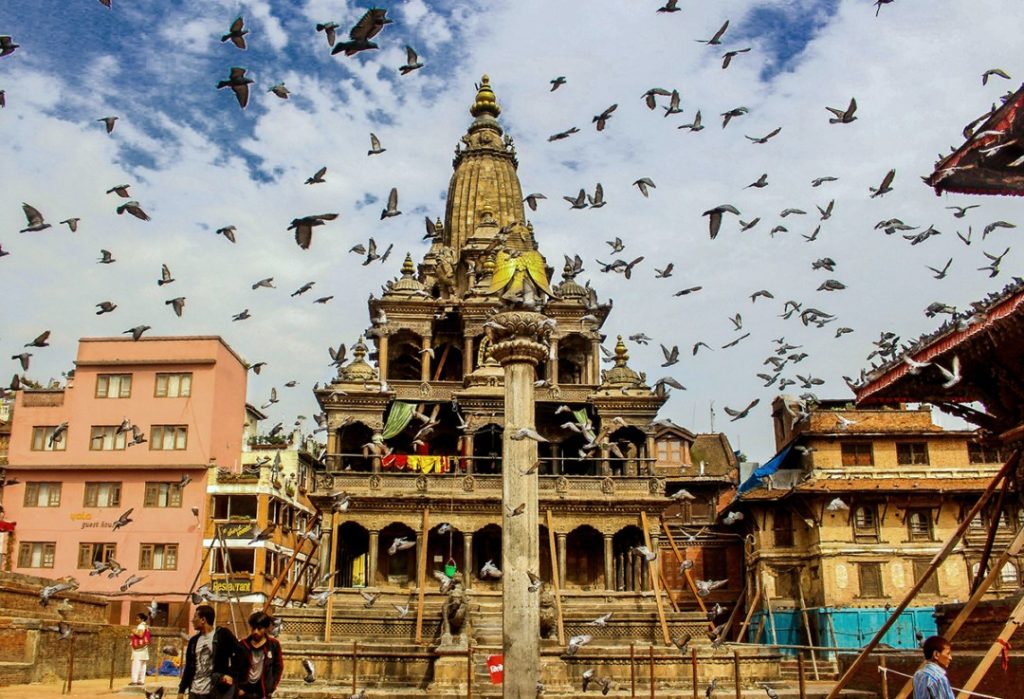

Hiranya Varna Mahavihar (Golden Temple)
The Golden Temple, also known as Hiranya Varna Mahavihar, built in the 12th Century by King Bhaskar Verma, is located just north of the Durbar square. This three-roof Buddhist monastery is adorned with a golden facade, four large gateways, a clock tower, and two lion sculptures. Inside are golden images of Buddha, wall carvings, and a prayer wheel.
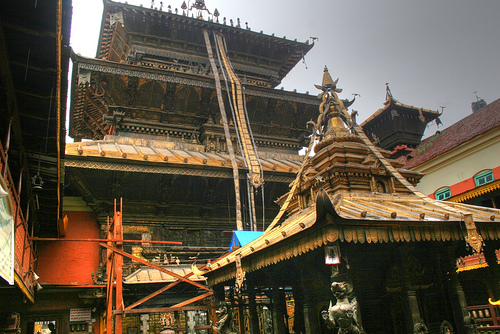

The Mahabouddha Temple
Built in the Indian Shikhara style, the shrine takes its name from the hundreds of terracotta tiles that cover it, each bearing an image of the Buddha. The Shikhara is upright, although it was cloaked in heavy-duty scaffolding when we last visited. The temple is loosely modeled on the Mahabouddha Temple at Bodhgaya in India, where the Buddha gained enlightenment.
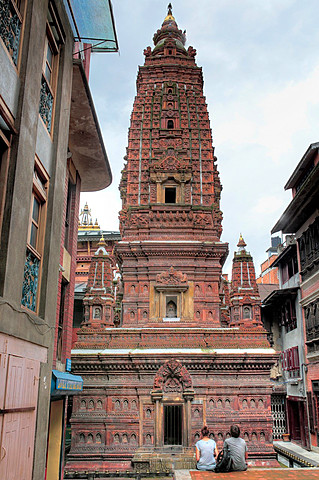

The Kumbheshwor Temple
The Kumbheshwor Temple is one of only two 5 tiered temples in Nepal. It hosts an annual pilgrimage of Hindus during the Janai Purnima day in July/August. During this event, Hindus of the Brahmin and Chhetri castes replace sacred thread that they wear over their shoulders while Jhakris beat drums and dance around the temple.


The Ashokan Stupas
There are four ancient stupas popularly believed to have been built in 250 BC by Emperor Ashoka at the four cardinal directions of Patan. The four stupas are situated in Pulchowk, Lagankhel, Ebahi, and Teta respectively. These stupas are evidence of the city’s ancient religious importance.


Temple of Machchendranath and Minnath:
The Pagoda of Red Machchendranath built in 1408 AD is situated in Tabahal. For six months, the deity is taken to its other shrine Bungmati. The temple of Minnath is situated in Tangal on the way to Tabahal. Machindranath Jatra is one of the most celebrated and major festivals of Patan.
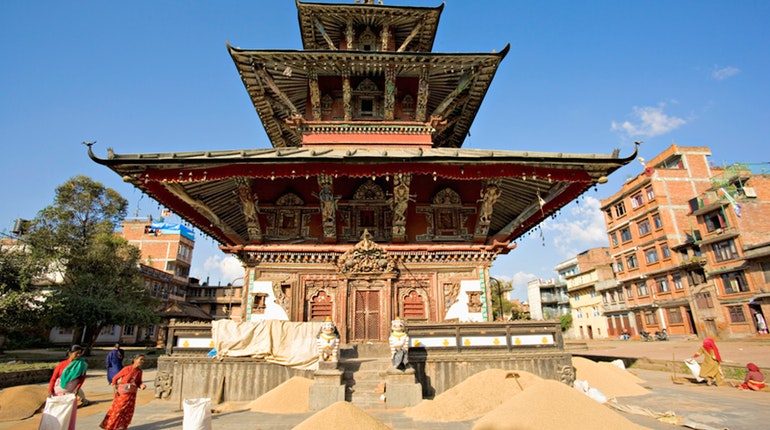

The Central Zoo:
The Central Zoo, situated at Jawalakhel, is the only zoo in all of Nepal. The zoo was established privately by Late Prime Minister Juddha Sumsher J.B. Rana in 1932 and was opened to the public only in 1956. It has many species of animals, birds, and reptiles in its collection representing mostly the Himalayan fauna. There is a beautiful pond built in the 17th century.

Besides these amazing places, there are many Jatras and festivals celebrated in Patan throughout the year. There are many old alleys, temples, and monuments in Patan which have different stories to depict through their unique style. There are also many painting, handicraft, and food shops, especially Newari local food joints, which you should visit to garner the complete experience of visiting Patan.
